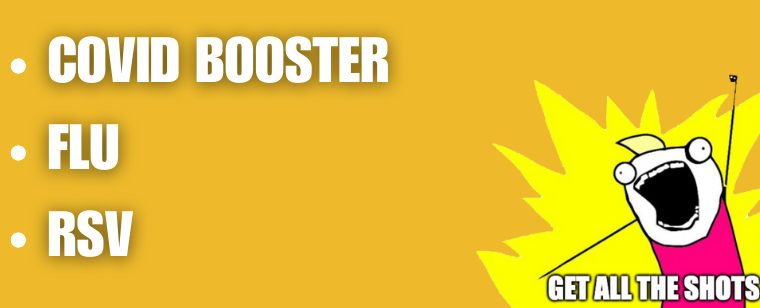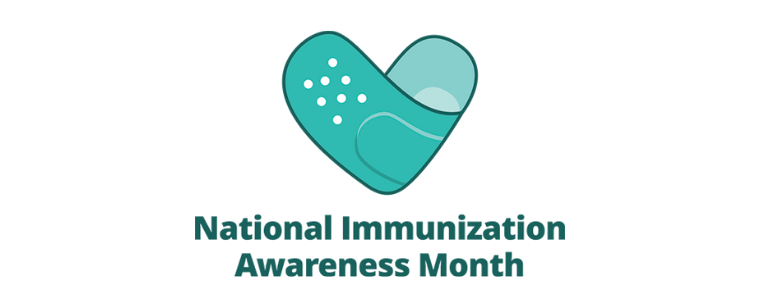Love and Vaccines
Stuck together, or not as the case may be
Writing a newsletter like this, it’s easy to assume that you’re preaching to the choir, literally and figuratively. We don’t get a lot of feedback on the content, and what does come in is almost always positive.
But there are people with serious concerns about the safety and efficacy of COVID vaccines and deep reservations about taking them. Or at the very least, people who believe that scientists haven’t made the case for vaccines.
I can’t agree on those facts, for several reasons. I haven’t seen any solid evidence that COVID vaccines cause more harm than good, or that they don’t do the job. If there were serious issues with the vaccines, I’d think we would have heard much more about them by now. The COVID vaccines have passed all the same CDC and FDA review processes as other vaccines. And last, many many people have put their reputations on the line to say that the vaccines are safe and do work.
Now, I’ll admit that a lot of this rests on trust in scientists, medical experts and other researchers. But that’s the way the scientific method works! Short of replicating the experiments ourselves, we have to take someone’s word for it. When many scientists have confirmed the results and there’s no clear evidence to the contrary, it becomes safer to assume that those results are accurate.
But there are people who don’t agree. One of them wrote in last week to say that I was being a bit heavy-handed in pushing boosters. I can kind of see it.
Let’s assume vaccines are indeed safe and effective. If that’s true, they offer more protection if they’re widely taken. That’s why we encourage everyone to get vaccinated and boosted. But let’s say that you’re not on board with the initial assumption. In that case, it must seem like there is tremendous social pressure to adopt a dubious proposition. My encouragement is your arm-twisting. A sincere and honest thanks to my reader for reminding me of that.
So let’s be clear: “encourage” means just that. It does not mean demand, brow beat, or judge for not doing. Realistically, only about 1 person in 4 at best will get the new booster. That would take a pretty heavy hand indeed to overcome.
On a practical level then, encouraging is about all anyone can do. I’d like people to think about taking a shot, for their own good and for the people around them. What else can you say?
There is a larger theological point worth making, however. As Paul lays out in I Corinthians, the Christian faith is all about understanding that individual choices affect the entire community.
That makes a lot of sense when you’re talking about vaccines. If I don’t vaccinate my kids against measles, it may mean a whole bunch of other kids will get it. That may result in serious illness or even death. The same is true for an unvaccinated or not-boosted person in a church community. Make your own decisions about getting a booster or not, then. Just understand that there are consequences to that decision.
At the same time, the whole point of the chapters leading up to the love hymn in I Corinthians 13 is to stay in relationship even with people you think are wrong. To paraphrase Paul, if I speak with medical and epidemiological authority, but do not have love, I am a noisy gong or a clanging cymbal. Breezily dismissing hesitations about vaccines is a great way to break relationship with people. Which is to say, fail them as siblings in Christ.
Love is not “arrogant or rude. It does not insist on its own way; it is not irritable or resentful; it does not rejoice in wrongdoing, but rejoices in the truth.” That lays it all out there, doesn’t it?
My encouraging everyone to get boosted was (is) an attempt to rejoice in the truth, as I understand it. Hey look, new boosters are available for everyone, and they work for everyone! If that came across as arrogant or rude, I do apologize. I’ll try to remember that the choir isn’t necessarily all in harmony on this point. (If you know churches or their choirs, you’ll know how common that is.)
All of us could afford to cut each other a bit of slack when it comes to these issues. The point is never to force people to do something they don’t want to do. It’s to act in a way that is best not just for us, but for everyone. That goes for the vaccinated and the unvaccinated alike.
P.S.: I’ve put together information on the new booster shots in a hopefully easy-to-read Q+A format in two slide decks, one in Spanish and one in English. Enjoy and feel free to share!
The Links
- The Public Health Communications Collaborative has a handy messaging guide for vaccines this fall.
- One good way to talk about vaccines is to encourage people to make a plan to get one. If they know when and where they’ll do it, they’re more likely to follow through and actually get the shot. I’m getting mine at the end of October, probably at Costco!




